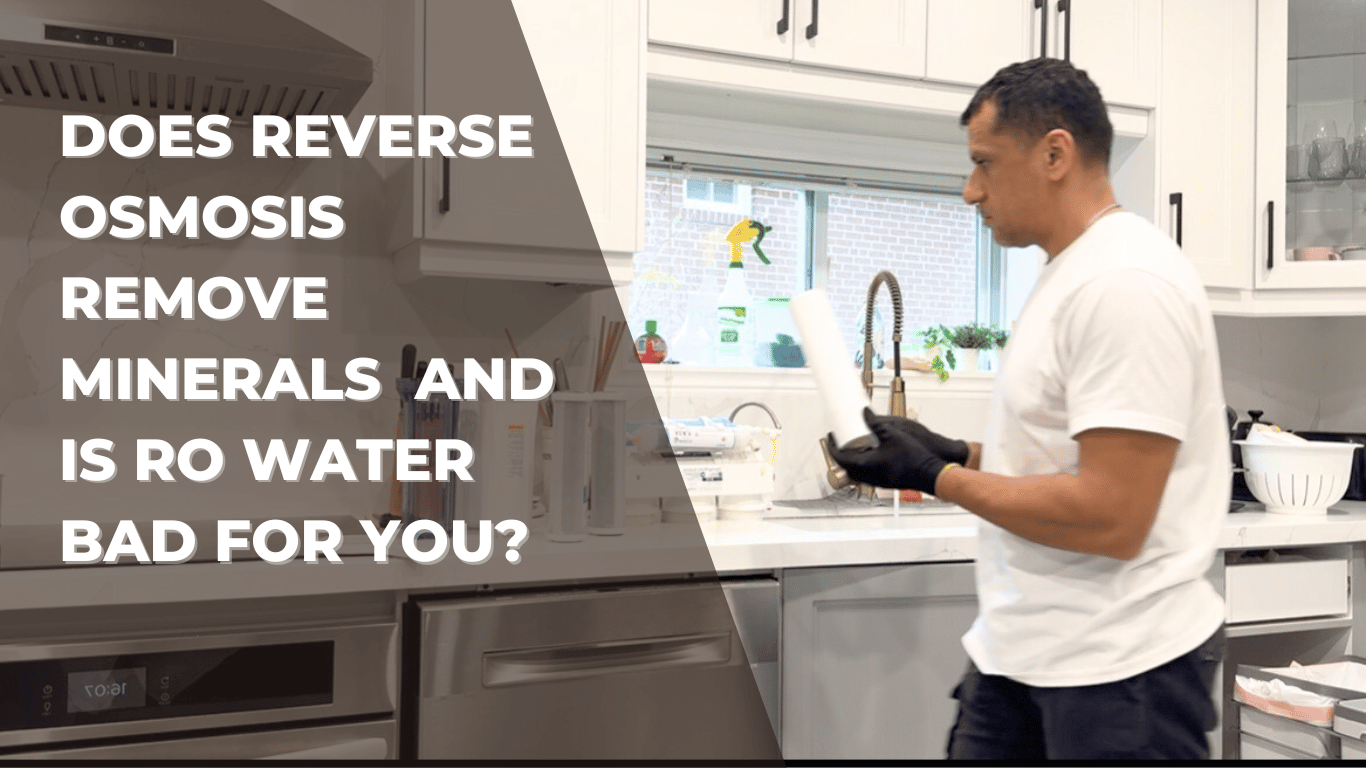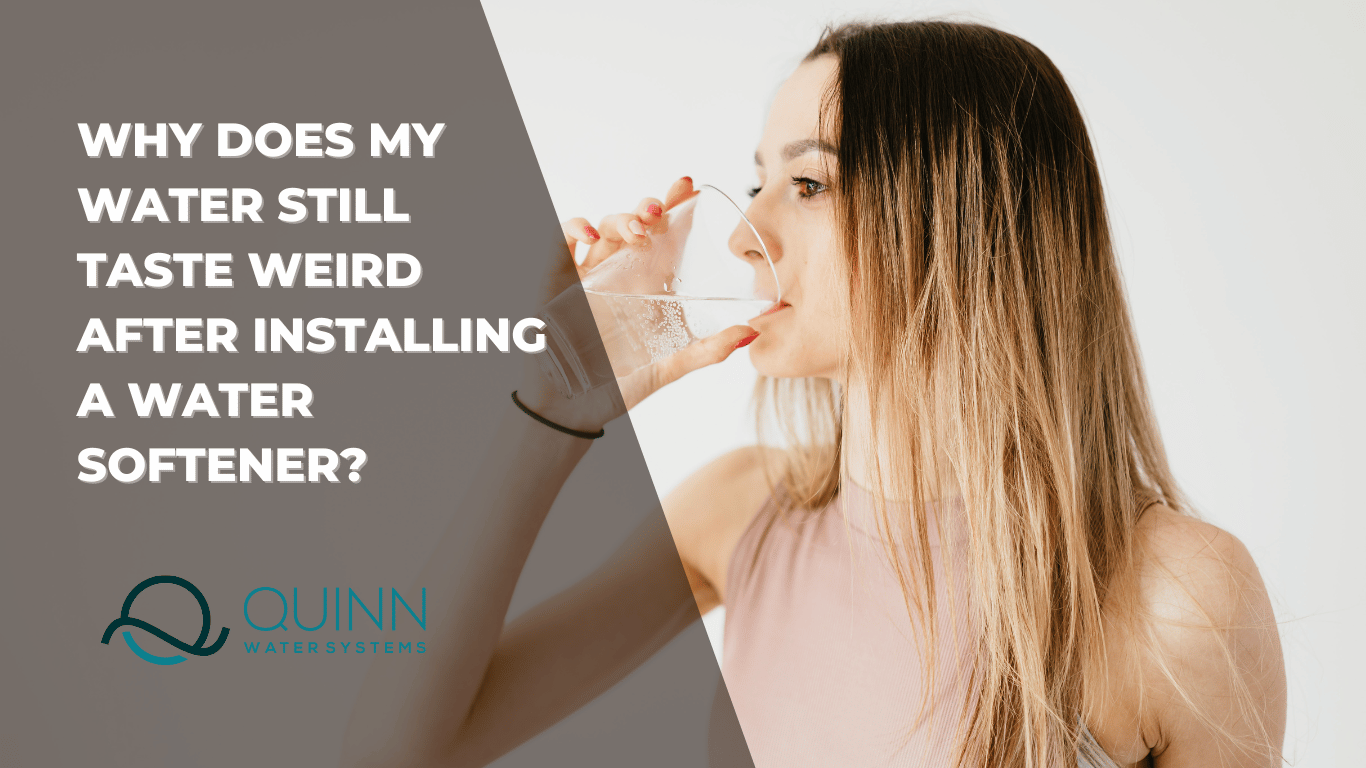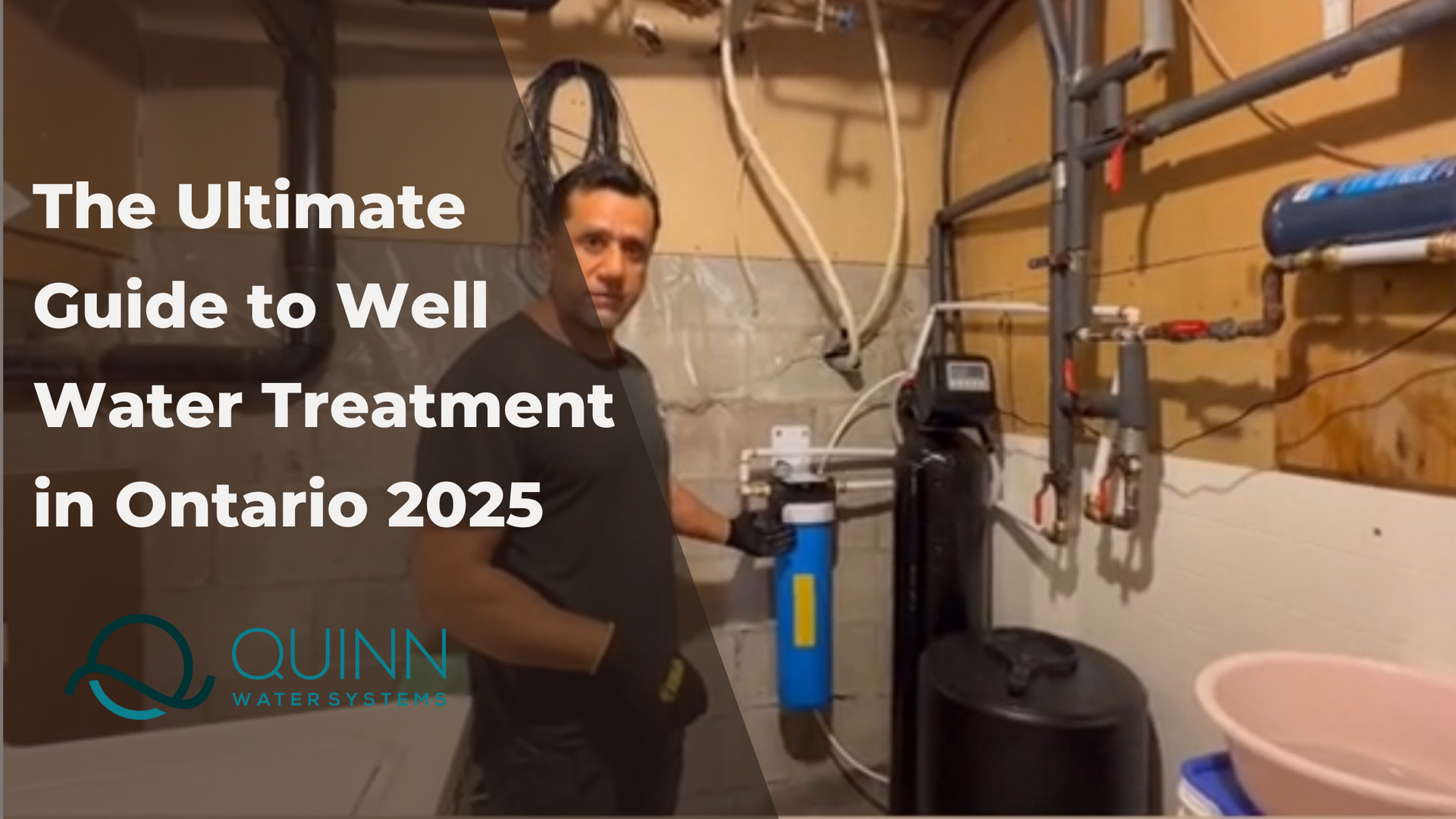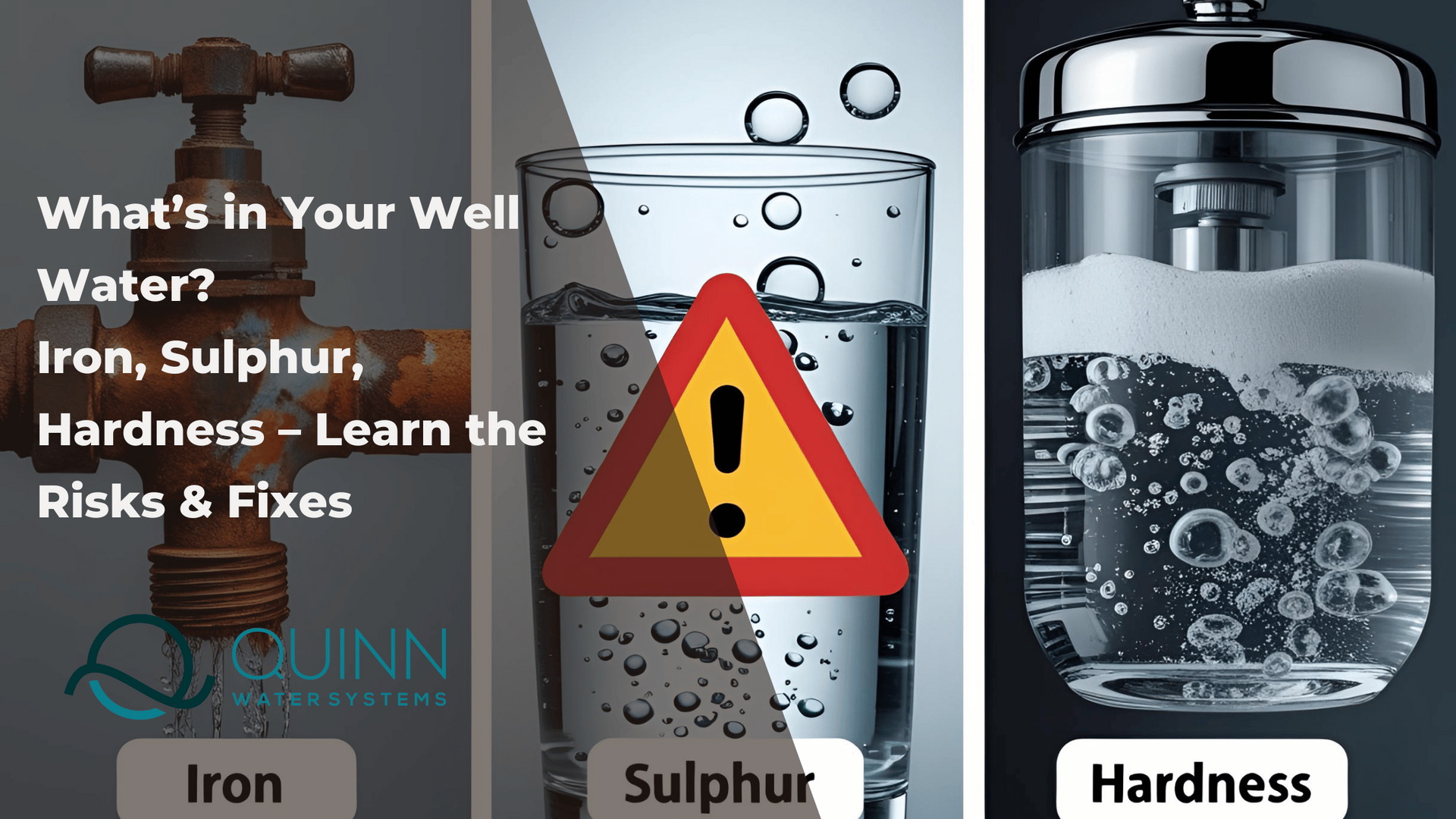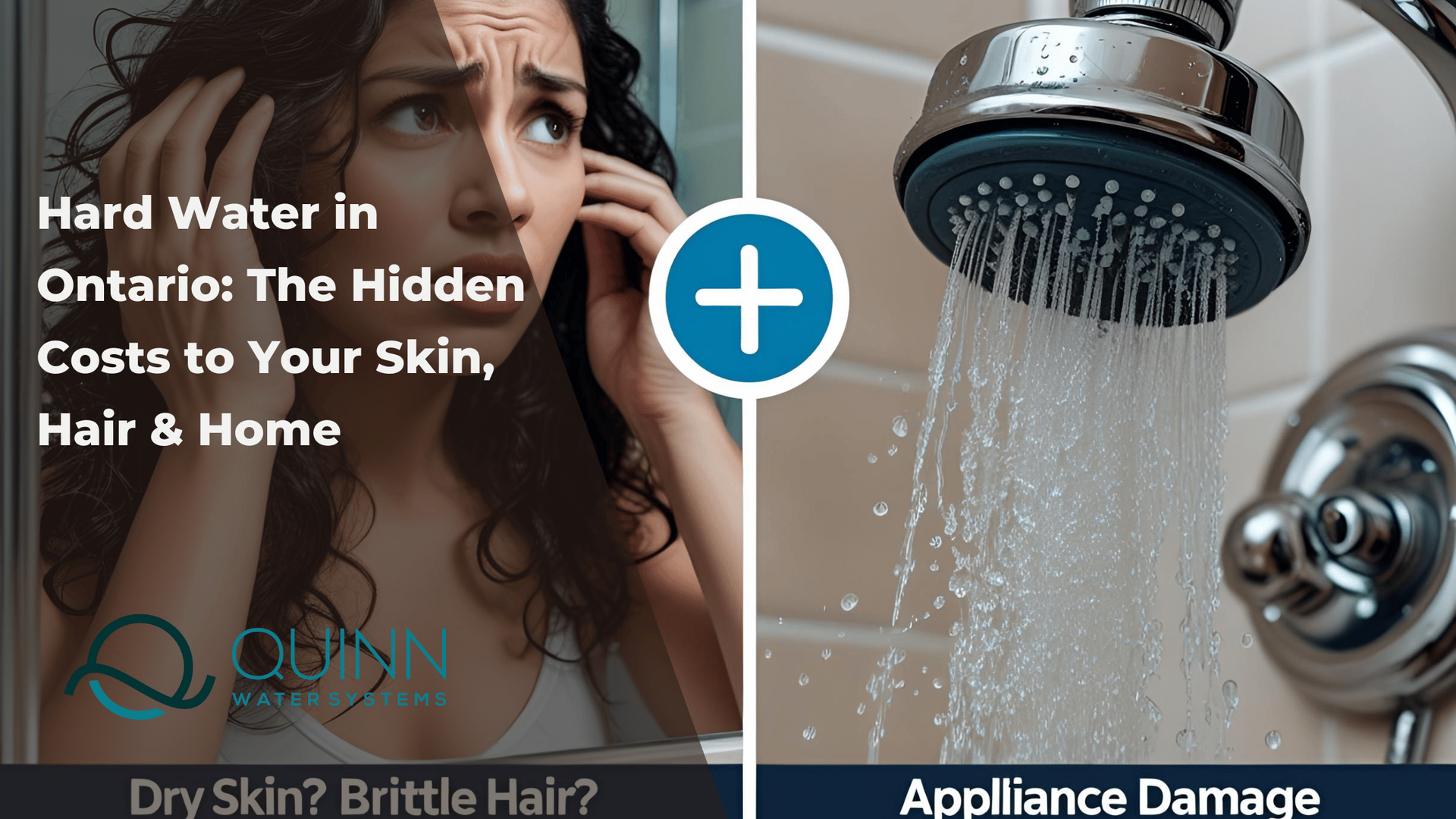Understanding Chlorine in Tap Water: What You Need to Know
Chlorine plays a vital role in water disinfection, effectively eliminating harmful microorganisms and ensuring that the water we consume is free from waterborne diseases. However, it is important to address common concerns and misconceptions surrounding chlorine, as well as potential health implications associated with its use.
In Ontario, water treatment facilities follow regulatory standards and guidelines to maintain appropriate chlorine levels in tap water. Understanding the role of chlorine, its benefits, and how it relates to water quality is essential for Ontario homeowners to make informed decisions about their water consumption and consider appropriate filtration methods if desired.

Definition and purpose of chlorine in water disinfection
Chlorine is a chemical element commonly used for its disinfectant properties. It is added to the water supply to kill or inactivate harmful microorganisms, such as bacteria, viruses, and parasites. The primary purpose of chlorine in water treatment is to ensure the safety and reduce the risk of waterborne diseases.
Different forms of chlorine used in water disinfection
Water treatment facilities utilize different forms of chlorine for disinfection purposes. The most common forms include chlorine gas (Cl2), sodium hypochlorite (NaOCl), and calcium hypochlorite (Ca(ClO)2). Each form has its advantages and applications, but they all work by releasing hypochlorous acid (HOCl) when in contact with water, which acts as an effective disinfectant.
However, it is important to note that while chlorine is effective at disinfecting water, it can also produce harmful byproducts.
Chlorine Exposure and Health Concerns:
Our exposure to chlorine extends beyond just drinking water. While the disinfection of water is essential, it's important to consider the potential effects of chlorine on our overall health and well-being. Chlorine can have negative impacts on both the taste and smell of water, as well as our skin and respiratory system.
One of the most noticeable problems with chlorine in tap water is its unpleasant taste and odour. The presence of chlorine can alter the flavour of water, as well as beverages like coffee and tea. Additionally, when we shower or bathe in chlorinated water, we may be exposed to even more chlorine than through drinking water. This is because chlorine is not only absorbed through the skin but also vaporized during showering and inhaled into the lungs. As a result, our daily exposure to chlorine often comes from showering.
The effects of chlorine exposure go beyond taste and smell. Chlorine can cause dryness and irritation of the skin, leaving it feeling dry and potentially exacerbating skin conditions. Similarly, chlorine exposure during showers can lead to dry hair and scalp.
To mitigate the potential negative effects of chlorine exposure, it is important to consider removing chlorine from the entire water source, not just drinking water. This can be achieved through the use of appropriate water filtration systems that effectively remove chlorine throughout the household water supply.When chlorine reacts with organic matter in the water, it can form disinfection byproducts (DBPs), such as Trihalomethanes (THMs). These byproducts have been linked to potential health concerns. Research has suggested a possible association between long-term exposure to high levels of THMs and certain cancers, such as bladder cancer, as well as potential risks to fetal development.
Regulatory Standards and Guidelines for Chlorine Levels:
To protect public health, regulatory bodies, such as the Environmental Protection Agency (EPA) in the United States and Health Canada in Canada, have established guidelines and standards for chlorine levels in tap water. These standards aim to maintain a balance between effective disinfection and minimizing the presence of harmful byproducts. Water treatment facilities in Ontario adhere to these regulations to ensure the safety and quality of tap water.
It is important to consider the potential health concerns and taste/odour issues associated with chlorine in tap water. Understanding these aspects can help homeowners make informed decisions about their water consumption and consider appropriate filtration methods to address chlorine-related concerns.
How can I remove chlorine from my water?
Activated carbon filters
Activated carbon filters are highly effective in removing chlorine from water. These filtrations work by adsorbing chlorine molecules onto the surface of the carbon, effectively reducing their presence in the water. Activated carbon filters not only remove chlorine but also improve the taste and odour of the water. They are commonly used in point-of-use and point-of-entry systems to provide clean and chlorine-free water throughout the household.
Aside from activated carbon filtration, reverse osmosis is another popular method for chlorine removal for your drinking water only. Reverse osmosis systems use a semi-permeable membrane to remove a wide range of contaminants, including chlorine, from the water. This system can provide purified drinking water by effectively reducing chlorine levels.
At Quinn Water Systems, we offer a Reverse Osmosis drinking water system that is specifically designed to remove chlorine and other contaminants from the water. Our 6-stage reverse osmosis filter is capable of removing up to 99% of all contaminants, ensuring you have safe and clean drinking water right from your kitchen tap. By investing in a reverse osmosis system, Ontario homeowners can have peace of mind knowing that their drinking water is free from chlorine and other potential contaminants.
Quinn Water Systems offers tailored filtration solutions to meet the specific needs of Ontario homeowners, providing you with safe and clean water throughout your homes.
Conclusion:
In conclusion, understanding chlorine in tap water is essential for Ontario homeowners who want to ensure their water is clean and safe. While chlorine is used for disinfection, it can create unpleasant taste and odour issues. Luckily, there are solutions available. Activated Carbon filters and reverse osmosis systems are great options for removing chlorine and improving water quality. Quinn Water Systems offers a 6-stage reverse osmosis system that can eliminate up to 99% of contaminants, including chlorine. By investing in the right filtration system, Ontario homeowners can enjoy refreshing and chlorine-free water throughout their homes. Say goodbye to chlorine and hello to clean, great-tasting water!
Contact Us
Share this blog
Blog Posts
